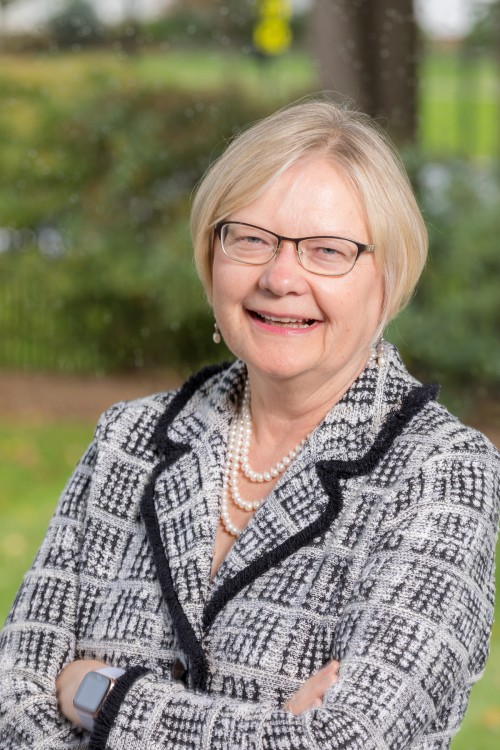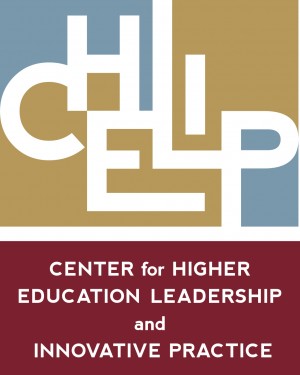The Change Maker: Dr. Melissa Morriss-Olson shares her perspective on the new normal for higher ed.
In mid-March, when the specter of COVID-19 emptied lecture halls and turned tight-knit seminars into remote Zoom chats, thousands of colleges and universities scrambled to reinvent the college experience for the students suddenly exiled from their campuses.
While the coronavirus has wrought monumental and unprecedented disruption to higher education, including rising costs, shrinking populations, and head-spinning technological transformations, many have long forecasted the end of the campus-bound academic business model while trumpeting the need for a “new normal.”
 Since the beginning of her career, 91�첥’s provost, Dr. Melissa Morriss-Olson, has been intrigued by the potential of this brave new normal and what it takes to develop and sustain innovation in the face of so much ongoing change.
Since the beginning of her career, 91�첥’s provost, Dr. Melissa Morriss-Olson, has been intrigued by the potential of this brave new normal and what it takes to develop and sustain innovation in the face of so much ongoing change.
“In the 90s, I did my doctoral dissertation on successful college management practices,” she says. “I studied the financial performance and management practices of 100 small colleges over a ten-year period. These schools looked similar at the beginning, but by the end of the decade, some were wildly successful, some experienced little change, and some had declined. The burning question I had was, ‘How do you account for the difference in performance; how is it that some but not all were able to pull together the courage, ambition, and skill to improve and become more resilient?”
One of Dr. Morriss-Olson’s key findings repeatedly confirmed throughout her career is that many institutions are shortsighted in their strategy. In financially challenging times, the temptation to “cut one’s way to an improved bottom line” is tempting. And yet, institutions that focus exclusively on cutbacks rarely succeed. Even in tough times, it is essential to invest in new ideas and in the future, says Morriss-Olson.
Her results found that most successful schools possessed “an innovation mindset.” They were highly opportunistic and outward-looking, with a focus on diversifying program mix and revenue streams and strengthening key operational areas, such as admissions and fundraising. They had leaders who were visionary and highly adaptive. She calls them “chaos pilots,” a term first coined in 1991 by Uffe Elbaek, founder of Kaospilot, an innovative business school designed to teach students how to lead through uncertainty. She also saw that many institutions—and those who ran them—seemed ill-prepared to meet the challenges they were facing and would continue to face.
“I went through a traditional higher ed leadership doctoral program (Loyola University of Chicago), and while I thought it was an exceptional program, my experience working in small, resource-constrained institutions—and that’s been my entire career—revealed a disconnect between my doctoral preparation and what I was actually experiencing as a professional in the trenches,” she explains. “This whole question of how do you lead and manage in the midst of disruption; how do you cultivate an innovative mindset while moving an institution forward? It’s just not something anybody teaches in the traditional higher education doctoral programs.”
Tapping into her passion and experience in helping to build nimble, resilient institutions, MMO, as she’s affectionately referred to by her 91�첥 colleagues, envisioned a doctoral program that would prepare professionals by giving them both the mindset and skills to implement bold new solutions for the evolving higher ed landscape.

Launch of the Higher Education Leadership and Organizational Studies (HELOS) program
This past fall, Dr. Morriss-Olson and program coordinator Dr. Mela Dutka launched 91�첥’s Higher Education Leadership and Organizational Studies (HELOS) program and welcomed 23 students from higher ed settings throughout the country into its first cohort.
With a global pandemic forcing most industries, including higher ed, into panic mode, the timing was fortuitous. “Frankly, I think we’ve just skimmed the surface of what the coronavirus impact is going to be,” she notes. “I’m on a listserv with other provosts, and I’m struck by how many are talking in terms of ‘Well, when we get past this, we’ll go back to x, y or z,’ and I’m thinking ‘Wow, they still don’t get it.’ This is going to change everything.“ For one thing, I think that the ongoing debate of whether online learning is valid is now off the table,” she continues. “When you have the most elite institutions in our��country moving their entire educational experience online, it’s going to be a hard thing to back off of.”
“To have an advantage going forward, institutions are going to be challenged to use technology to provide a really robust, personalized, and dynamic experience that meets the student where she or he is at, whether or not that student is tethered to a physical space.”
 These ideas are all seeds of bigger conversations Morriss-Olson envisions herself facilitating as she steps down from her ten-year stint as provost and into her new role as Distinguished Professor of Higher Education Leadership and Founding Director of the HELOS program and 91�첥’s newly formed Center for Higher Education Leadership and Innovative Practice (CHELIP).
These ideas are all seeds of bigger conversations Morriss-Olson envisions herself facilitating as she steps down from her ten-year stint as provost and into her new role as Distinguished Professor of Higher Education Leadership and Founding Director of the HELOS program and 91�첥’s newly formed Center for Higher Education Leadership and Innovative Practice (CHELIP).
In consort with the HELOS program, the Center will invite faculty from across the institution to experiment with innovations in teaching and learning, and students from 91�첥’s higher ed graduate programs to grow their innovative leadership skills.
With rapid change and widespread closings more imminent than ever, some may be tempted to imagine a dystopia of empty campuses and lectures by laptop, but Morriss-Olson remains steadfastly committed to preserving the diversity and range within America’s higher ed system.
Change is ongoing, always happening, and not something we typically take the time to understand, especially when we are in the midst of it." - Dr. Melissa Morriss-Olson
��
“As a first-gen college student who could have never imagined when I was 18 years old the professional trajectory that I have��been so fortunate to have, I believe strongly in the need for a place like 91�첥,” she explains.
“But,” she ponders, “maybe today’s students don’t need to be in a traditional classroom for three to four hours a week, for 15 weeks, with a professor at the front of the room?”
“Maybe, rather than having students in residence for four consecutive years, we have them spend their first year at home online, shadowing and getting some hands-on experience,” she proposes. “And then, they come to campus and have an on-campus experience that may, or may not, look different than what we’re used to.
13 percent of presidents could see their own institutions closing or merging within the next five years, according to a recent survey by Inside Higher Education.
��
“Then your third and fourth years are how you design them, or maybe it’s not even four years; the whole thing is unbundled in such a way that they get what they need as they need it, according to whatever career trajectory they’re on—and it could be extended over the course of an entire lifetime.” She adds knowingly, “Now, I’m really out there. But I think five years from now, that may be where we’re headed.”
